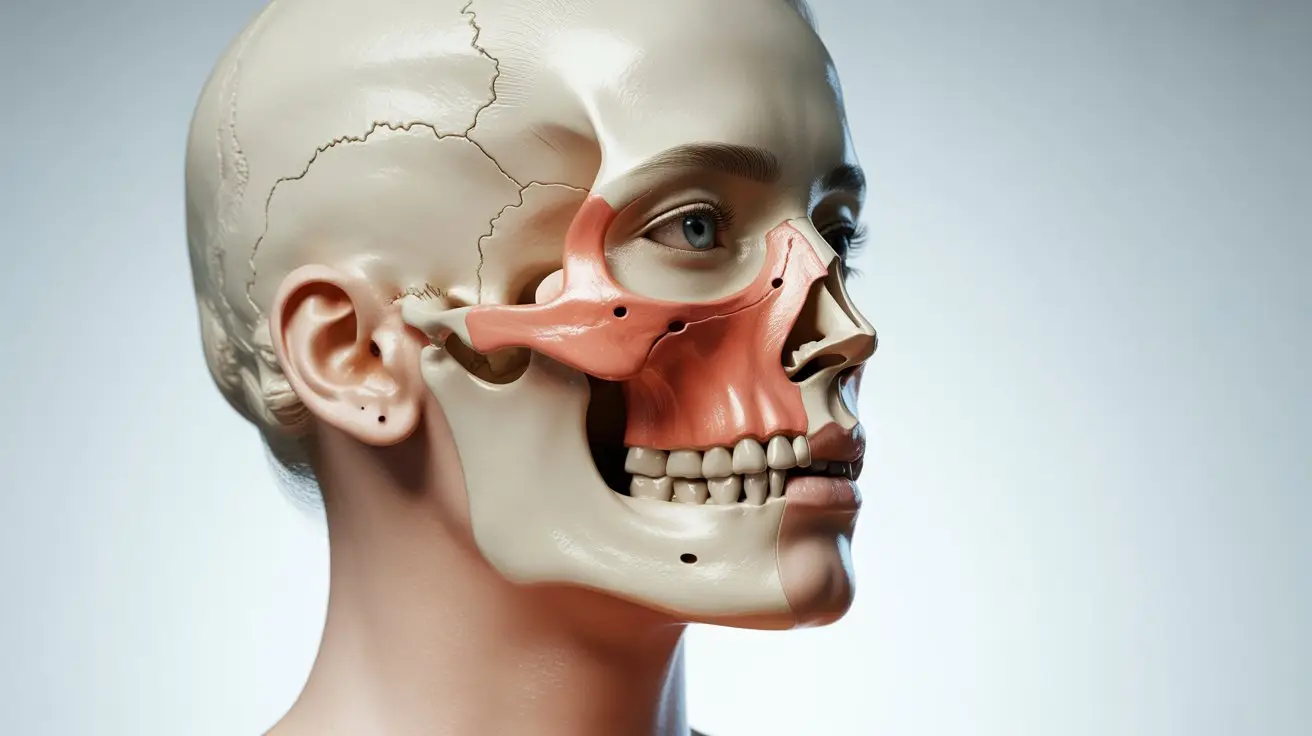Upper jaw expansion surgery is also known as palatal expansion. This procedure is performed to improve the alignment and closure of the upper and lower jaws.
Jaw surgery is a comprehensive field. Various jaw surgeries are carried out for different purposes. Upper jaw expansion surgery is an orthodontic treatment designed to widen a narrow upper jaw. This staged treatment significantly improves patients’ quality of life.
What is Upper Jaw Expansion Surgery?
Upper jaw expansion surgery is a surgical procedure applied in cases where the upper jaw is too narrow. This surgery constitutes only one phase of orthodontic treatment and cannot be performed alone. The operation, performed under general anesthesia, falls under the scope of jaw surgery.
What Happens Before Upper Jaw Surgery? What Are the Stages of the Operation?
- X-rays are taken to establish a clear diagnosis.
- Teeth are aligned using orthodontic treatment in preparation for surgery.
- Plaster models are made to serve as surgical guides.
- Skull X-rays are examined to assess the pre-operative condition.
- Before-and-after images of the patient’s profile are presented.
- Scans are transferred to a computer to perform measurements. 3D software helps visualize post-surgical outcomes.
- The surgery is performed by both a jaw surgeon and an orthodontist. Planning is carried out by a professional team.
How is Upper Jaw Expansion Surgery Performed?
In cases where the upper jaw is positioned too far back or is underdeveloped, upper jaw expansion surgery involves cutting the upper jawbone and moving it forward. Bone tissue is grafted into the gap created during the procedure, and the jaw is stabilized with titanium plates and screws.
If the upper jaw is excessively developed and protrudes, part of the bone is removed and the jaw is repositioned backward, again fixed with screws. Post-operative nutrition is generally not problematic, and any swelling in the area typically subsides within a week.
Who Can Have Upper Jaw Surgery?
Upper jaw expansion surgery is commonly performed on adults who are 18 years or older and whose bone development is complete. However, the surgery is not done in isolation. It must be accompanied or preceded by orthodontic treatment. Braces are usually still in place during surgery. Suitable candidates include:
- Individuals whose upper jaw is too far forward compared to the lower jaw
- Individuals who have difficulty breathing due to jaw issues
- Individuals whose upper jaw is behind the lower jaw
- Patients with skeletal issues in the upper jaw area
- Individuals with asymmetry in the upper jaw (left or right side dominant)
- Patients with anatomical deformities in the upper jawbone
- Individuals with underdeveloped upper jaws
- Patients with aesthetic concerns
- People with facial asymmetry
- Patients with chewing or speech problems
- Cases where orthodontic treatment alone is insufficient
- Open bite cases where upper and lower teeth do not meet
What Are the Benefits of Upper Jaw Surgery?

Also known as palatal expansion, upper jaw expansion surgery offers numerous benefits. The main goal is to improve jaw alignment, providing both aesthetic and functional results. Benefits include:
- Correction of problems not resolved by orthodontics
- Elimination of speech disorders
- More defined and attractive facial profile
- Shortened duration of orthodontic treatment
- Reduction in jaw pain
- Improved jaw function
- Increased self-confidence and quality of life
- Improved breathing; sleep apnea may also be treated
What Are the Risks of Upper Jaw Surgery?
As with TMJ surgeries, upper jaw expansion surgery carries certain risks. The most common complications include those involving the jaw and lip regions. Postoperative issues like nausea, vomiting, swelling, bruising, and infection may also occur. To minimize these risks, surgery should be performed by qualified professionals. You may contact Prof. Dr. Celal Çandırlı for a safe procedure.
What is the Postoperative Process Like?
Recovery following upper jaw expansion surgery involves several steps to ensure optimal results:
- Antibiotics are administered to prevent infection.
- Temporary numbness is common and usually subsides over time.
- Muscle relaxants and painkillers may be recommended.
- Initial dressings are removed within 3–4 days, and stitches can be taken out.
- Liquid foods are encouraged initially, followed by soft foods.
- Patients undergoing only upper jaw surgery can typically resume normal life within a few weeks.
- Oral hygiene is essential; mouthwash should be used after each meal.
- Orthodontic treatment is usually continued after the surgery.
How Much Does Upper Jaw Expansion Surgery Cost?
- Facial structure
- Whether it’s a single jaw or both upper and lower jaws
- Degree of jaw misalignment
- Type of procedures involved
For detailed pricing, please contact the clinic of Prof. Dr. Celal Çandırlı.
Are Patients Satisfied With Upper Jaw Expansion Surgery?
Although it is a complex operation, patients generally report high satisfaction with upper jaw expansion surgery. Positive feedback includes correction of jaw irregularities and improved facial aesthetics.
How is Upper Jaw Narrowness Treated in Adults?
In adults, treatment of upper jaw narrowing is performed through surgical methods. This involves surgically assisted upper jaw expansion surgery under general anesthesia.
What is Lower Jaw Expansion Surgery?
Lower jaw expansion surgery is performed on individuals aged 18 and over as a supplement to orthodontic treatment. Conducted under general anesthesia, it plays a crucial role in correcting jaw deformities.
Frequently Asked Questions
1 – How Long Does Upper Jaw Expansion Surgery Take?
It is usually performed under general anesthesia and lasts approximately one hour.
2 – Is Upper Jaw Surgery Risky?
This frequently performed surgery generally goes smoothly, although there are risks associated with general anesthesia.
3 – What Happens If Upper Jaw Expansion Isn’t Done?
Lack of upper jaw expansion surgery can lead to long-term issues such as chewing and speech problems, as well as joint disorders.
4 – How Much Does Upper Jaw Expansion Surgery Cost?
Costs vary based on several factors. Contact our clinic for specific pricing information.
5 – At What Age Can Upper Jaw Surgery Be Performed?
It is performed on adults aged 18 and older whose bone development is complete.
6 – What Is the Purpose of Jaw Expansion Appliances?
Used by orthodontists, these devices help increase the space between teeth and expand the jaw.








